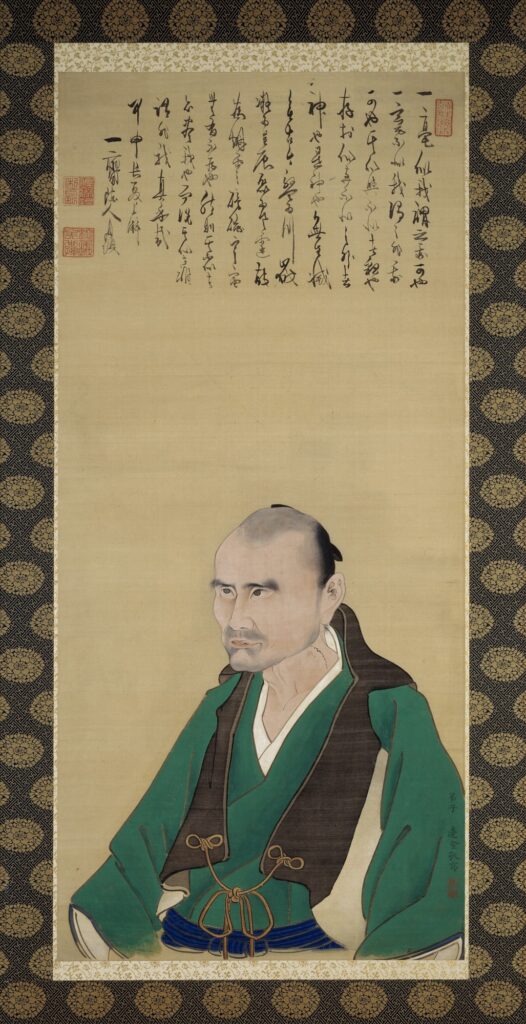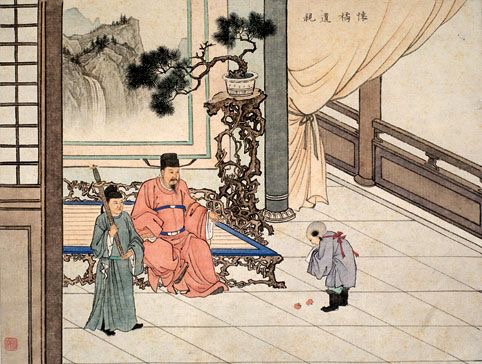Origin of Confucianism
Confucianism, a system of thoughts, developed in China between 1000 and 250 B.C.E and was introduced to Japan from Korea during around the fifth or sixth century C.E. Confucianism developed from teachings of the Chinese philosopher Confucius (551–479 BC), during a time that was later referred to as the Hundred Schools of Thought era.
The core teachings of Confucius emphasize that natural forces govern all social relationships, including those between rulers and subjects. He advocated that leaders must govern by moral example, warning that failure to do so would lead to disorder. Additionally, he stressed the importance of self-improvements through the study of classical virtues, music and traditional rituals.
Spread of teachings
During the fourth century C.E., Confucian thought spread to the Korean peninsula, where it attained considerable influence among the ruling classes. One Confucian scholar Wani traveled from the Korean kingdom of Paekche to Japan in the early fifth century. Wani then became a quite influential administrator at the court of the Yamato emperor. Some books brought by Wani, however, had a greater impact on shaping Japanese culture. They played a leading role in the diffusion of the Chinese writing system in Japan, thereby increasing the country’s literacy, and they also brought a new direction to the political life of the Japanese archipelago.
Significance
The influence on Japanese culture of the introduction of Confucian thoughts in the sixth century was profound. The confucian principle of ‘Xiao’ (filial piety) teaches respect and obedience toward parents and elders, which has influenced Japanese people’s strong family values. For example, Japanese people celebrate Obon Festival, which is the time for Japanese to honour deceased ancestors, reflecting its family honour and ancestral respect that is highlighted in confucian ideals. Moreover, Confucianism underscores the significance of social harmony, which also aligns with the Japanese concept of ‘He’. This is also evident in Japanese culture where consensus and teamwork are prioritised over confrontations and conflicts.
Indeed, Confucianism, Buddhism, and Shinto, the native faith, became a dominant role in shaping the Japanese culture tradition.

